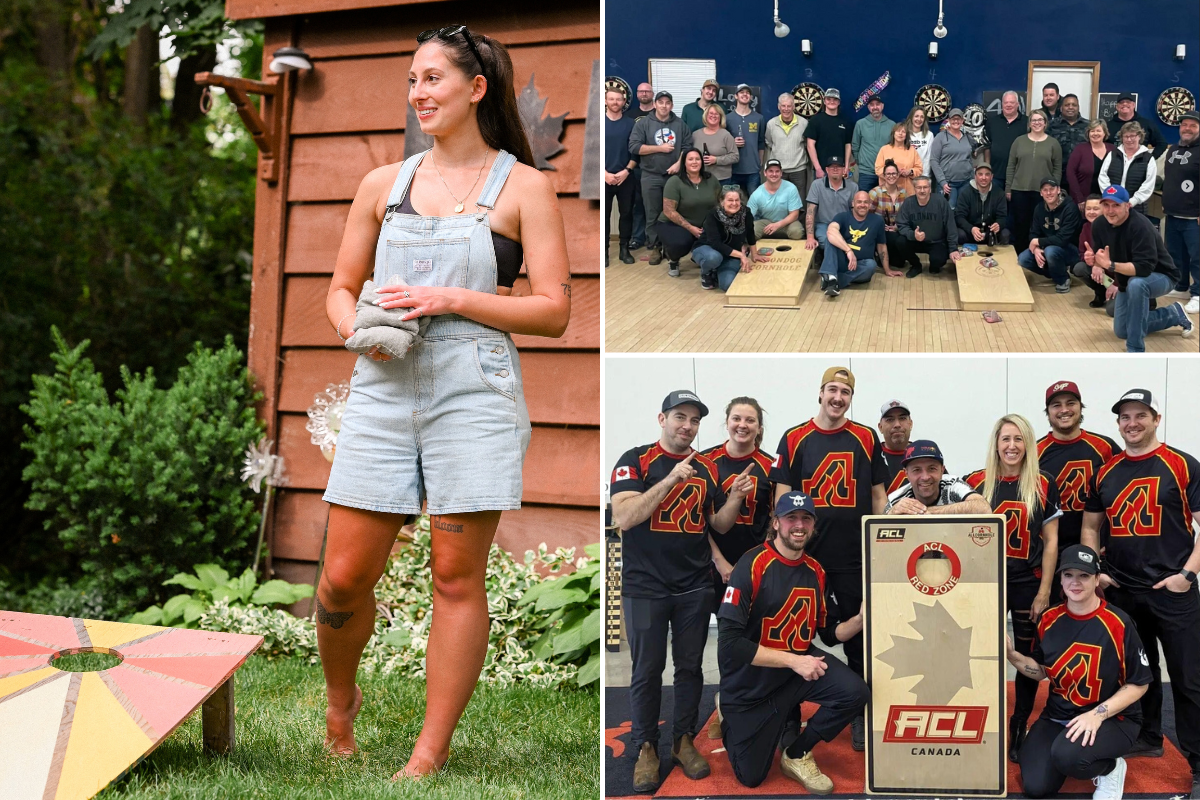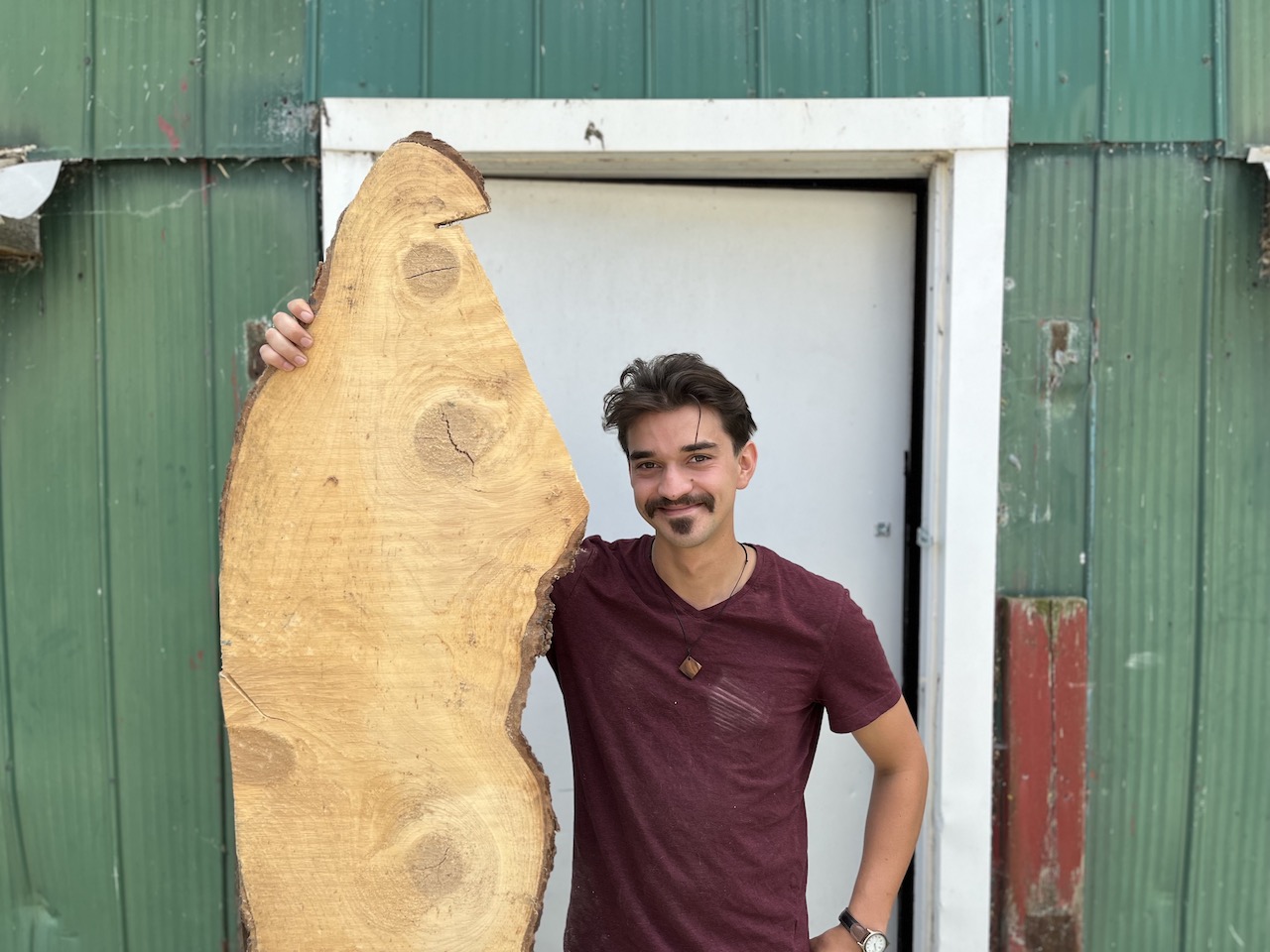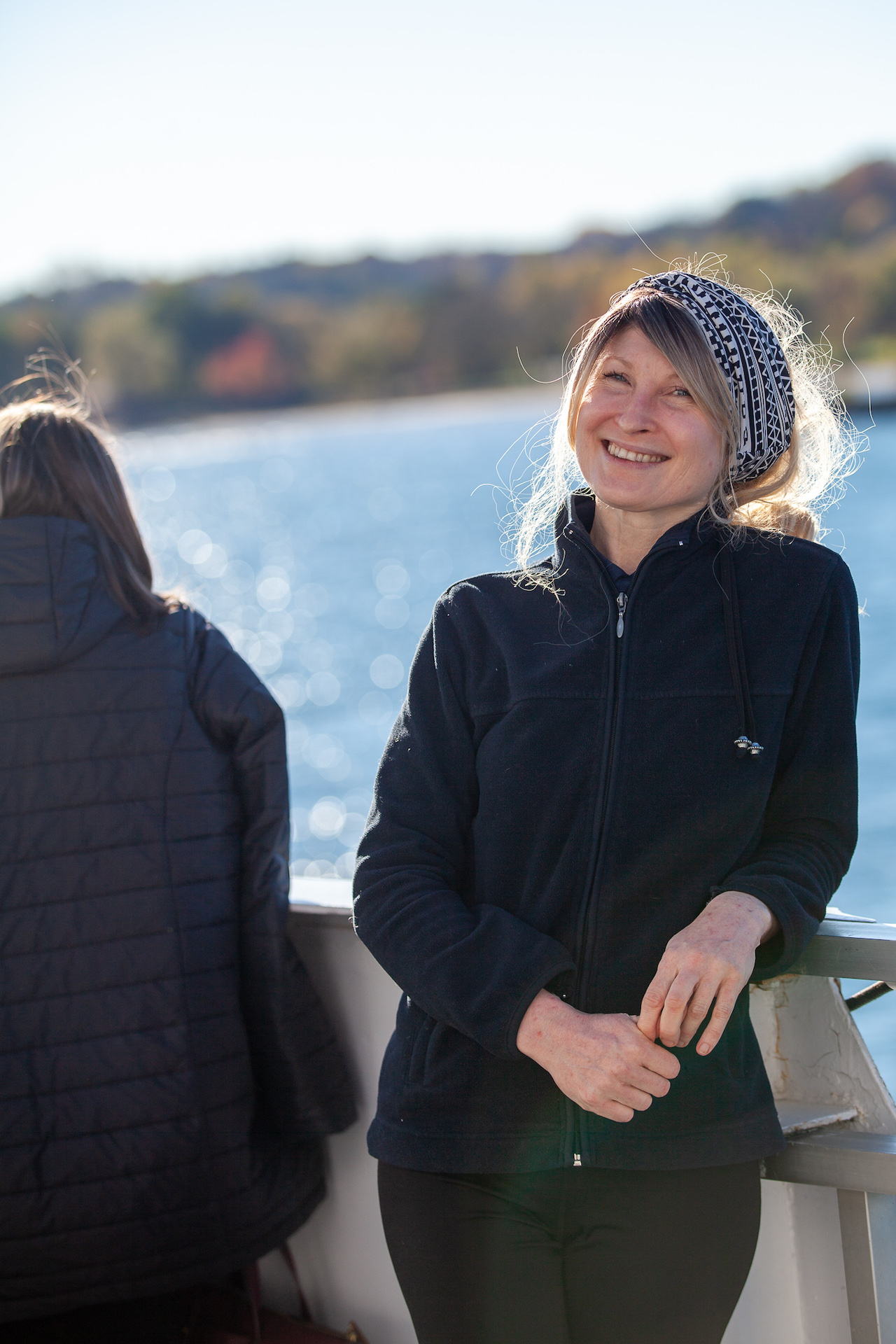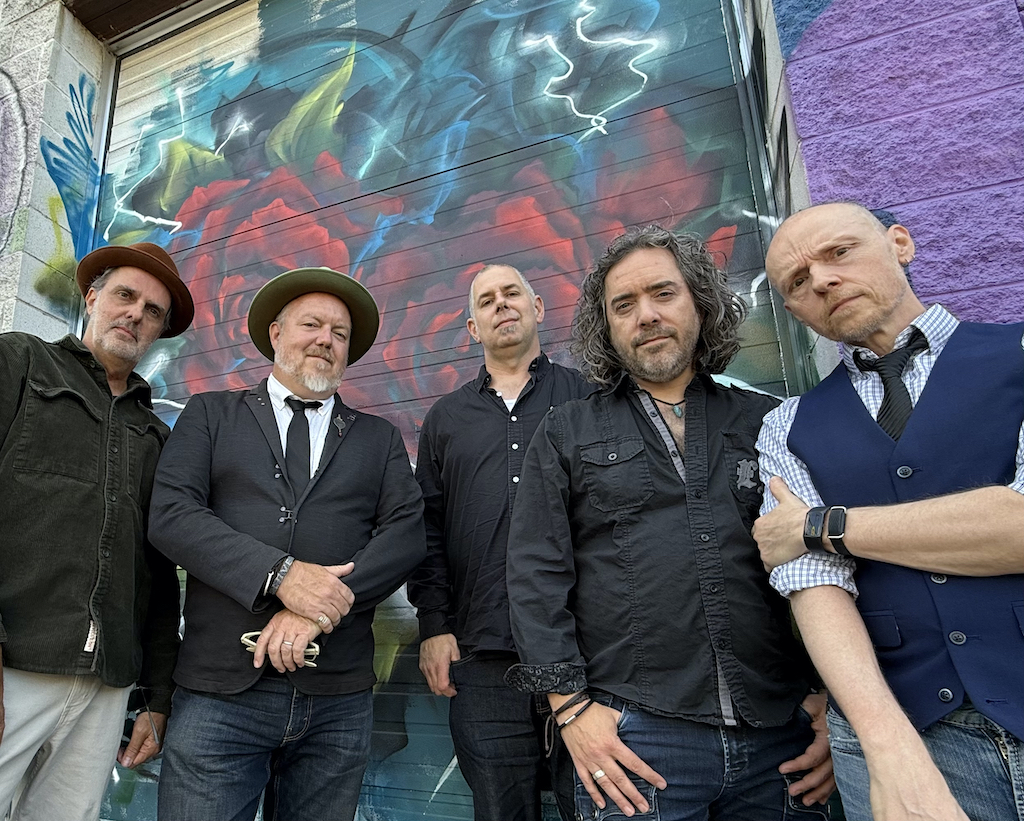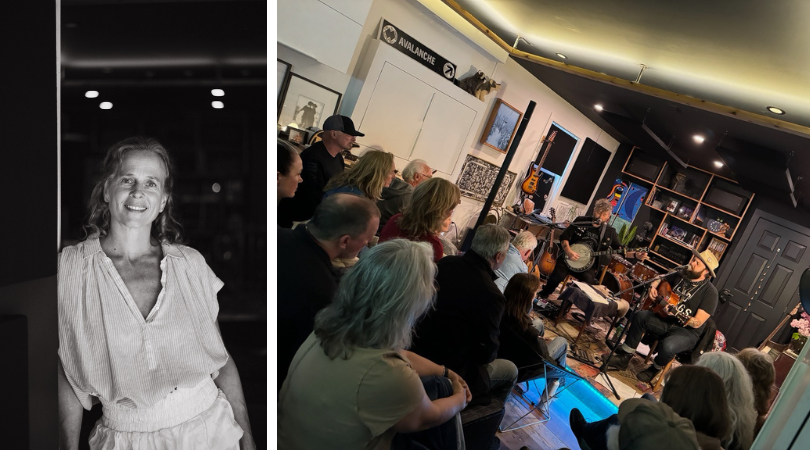If you know, you know.
Perhaps one of the most frequently recited platitudes of modern times, clocking in somewhere just behind ‘it is what it is.’ In the hustle and bustle of modernity, we often remain benignly ignorant of the vast worlds of culture and community at our doorstep. This was the case for me when I reached out to speak with Michael Nieleszeruk about his business, the Moondog Cornhole Company. This local business runs out of Grey Highlands, a grassroots Canadian success story.
Moondog makes equipment and organizes leagues and tournaments throughout the year playing something you thought was only a backyard game. Upon speaking with Michael, it becomes abundantly clear that cornhole is a much bigger deal than public perception may give it credit for. With my curiosity piqued, I set out to learn more about this cult classic from cottage country.
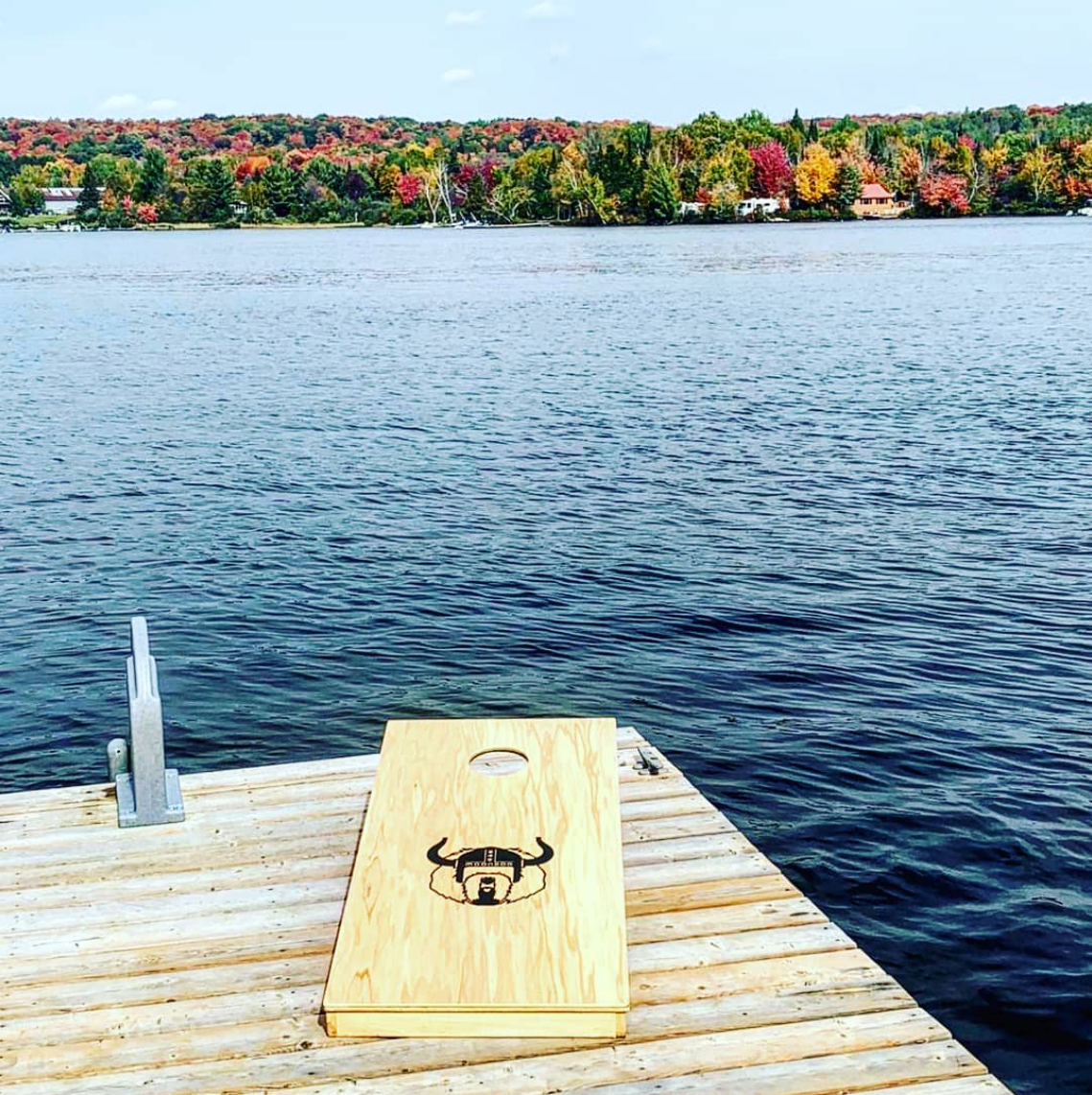
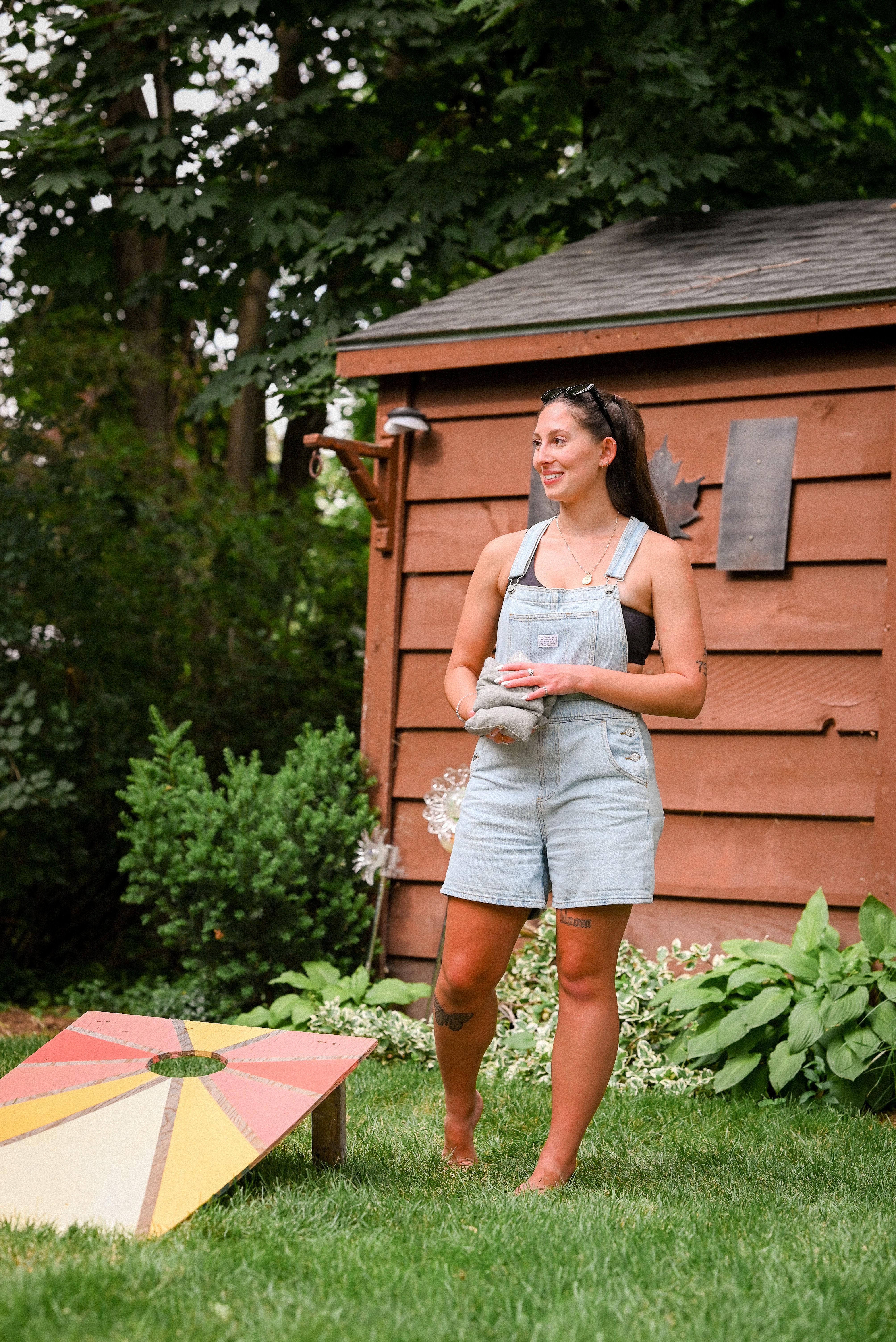
“No, it’s not just for backyard parties,” chuckles Michael, answering a question he obviously gets a lot. The overriding image cannot be denied – the backyard awash in sunshine, your aunts, uncles, and cousins hurling sacks back and forth, spectators laughing and cheering them on. It goes without saying that most characters in this vignette also have a half-empty libation nearby.
The Canadian cornhole family is pretty tight,” says Michael. “That fact alone makes the whole thing feel worthwhile, as a hobby, a sport, and a side-business.”
However, there is much more to cornhole than this commonplace memory – as a sport, it has professional leagues, conferences within the leagues, international tournaments, rankings for teams and players, and various strategies and tools of the trade, with major sponsorship dollars and prize money available at the top level.
With only the briefest glimpse into this yawning cavern of culture, I knew there was more to discover. Aside from being a game that is accessible to just about anyone, there is a professional circuit in the US, known as the ACL (American Cornhole League). The ACL has a wide range of demographics represented amongst their ranks, illustrating how the game is not restricted to a certain type of competitor. Whether you already love the sport or want to give it a try, this league is inclusive for all.
“The sport is growing and climbing so quickly, bigger than most people could have imagined,” says Michael. “It’s a game anyone can play – that is the inherent strength of our sport.”
The ACL is now worldwide, and professionals travel to national events and open tournaments held throughout the year. Last year the first ACL Open outside the US was held in Niagara Falls – Michael says this is the first of many. On top of this, Ontario is itself a Conference within the ACL, with Michael serving as a Regional Director.
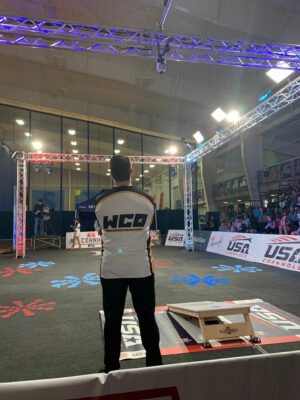
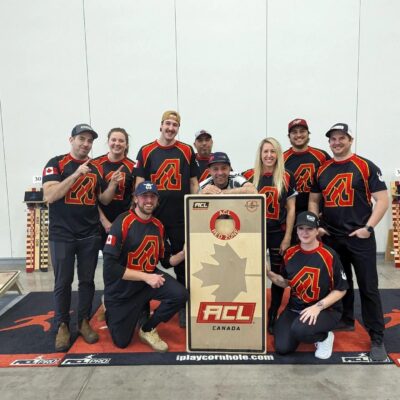
Though it may surprise some, the ACL Canada Open (in Niagara) was televised on ESPN, where Michael was fortunate enough to be shown playing one of his matches. “That’s one of the main advantages they have in the States,” he says. “The television coverage highlights what the sport can be at the top level and gets people believing it can be more than just a hobby.”
But it can still be just a hobby, as the typical league scene would attest to. “Most people keep the backyard tradition alive and have a beer close by,” says Michael with a laugh. The league season starts in early October and runs through the end of August (the final few events are invitationals).
Michael says participation is on a drop-in basis, with an average of 20-30 players per night, a number that is still growing. “Cost wise, it is very affordable, less than going to the movies,” he says. “It’s a great way to get out, meet people, and have fun.” Statistics are recorded in the system year-long, which keeps everyone in the appropriate division and maintains the proper level of competition for various skill levels – I got the impression that fun was paramount for many, while the higher divisions focus a bit more on competition.
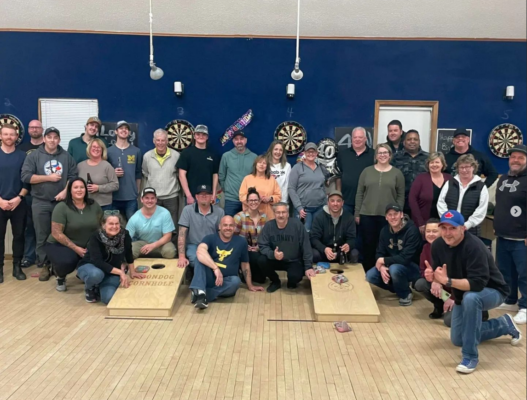
For those competitive players, there is a lot to learn, with different types of equipment to consider – this is one of the things Michael and his brother identified during a trip Stateside, and Moondog has sought to bring pro-level equipment to Ontario. “Historically boards are made of plywood,” he says, “whereas we took the cue from our visit to the World Championships a few years ago and use Baltic Birch, so the sacks don’t bounce around as much. The added consistency makes a big difference for competition.”
So… cornhole. A classic game with a name that makes it sound semi-scandalous. Who knew it was so widespread, and still growing in popularity? “The Canadian cornhole family is pretty tight,” says Michael. “That fact alone makes the whole thing feel worthwhile, as a hobby, a sport, and a side-business.”
The discovery of something new always imparts a certain excitement, perhaps even more so when it is not actually new at all – it has always been there, hiding in plain sight, thriving in apparent obscurity. And for those who enjoy games (curling, darts, golf, pool) where a beer in hand (or nearby) is not only allowed but encouraged, it feels like this convergence of culture and sport is worth checking out.
—
Words by Dan Zuwala
Photos by Paige Thompson and submitted by Moondog Cornhole

